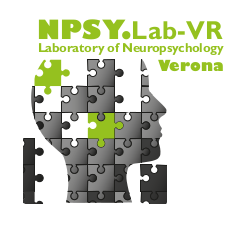Spatial Cognition is concerned with the acquisition, organization, and utilization of knowledge about spatial objects and environments, be it real, virtual, or abstract, human or machine. Spatial Cognition comprises research in different scientific fields insofar as they are concerned with cognitive agents and space, such as cognitive psychology, linguistics, computer science, geography, philosophy, or education. Research issues in the field range from the investigation of human spatial cognition to mobile robot navigation, including aspects such as wayfinding, spatial planning, spatial learning, internal and external representations of space, and communication of spatial information.
During this conference Michele Scandola presented the work “On the relation between body and movement space representation: an esperimental investigation on spinal cord injured people” by Scandola M., Togni R., Brambilla M., Avesani R., Moro V.
The conference was held in Tuebingen, Germany, September 05 to 08, 2018
General Chair:
Alexander Klippel, The Pennsylvania State University, USA
Program Chairs:
Sarah Creem-Regehr, The University of Utah, UT, USA
Johannes Schöning, University Bremen, Germany
Local Chairs:
Hanspeter Mallot, University of Tübingen, Germany
Heinrich Bülthoff, Max Planck Institute for Biological Cybernetics, Tübingen, Germany
Marianne Stickrodt, Max Planck Institute for Biological Cybernetics, Tübingen, Germany
Tobias Meilinger (honorary member), Max Planck Institute for Biological Cybernetics, Tübingen, Germany
Poster Chair:
Lace Padilla, The Universtity of Utah, UT, USA
Bodo Winter, University of Birmingham, UK1
